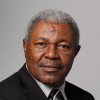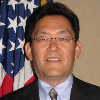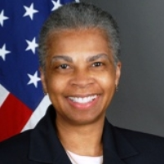Comoros
Among the world’s least developed countries, Comoros is a group of four islands in the Indian Ocean between Madagascar and northern Mozambique. The islands of Comoros are both one of the least populous and most densely populated countries in the world.
Lay of the Land: The Comoros consist of four volcanic islands–Grande Comore, Anjouan, Mayotte, and Mohéli–north of Madagascar in the Indian Ocean.
The U.S. recognized the Comoron government in 1977 and maintains friendly relations. The U.S. closed its Moroni embassy in 1993 and is now represented in Comoros by a nonresident Ambassador in Madagascar.
Tourists
Comoros is one of the poorest, most underdeveloped and most indebted nations in the world. A steady decline in political stability since the nation declared independence in 1975 has also caused a decline in living conditions and quality of life. According to international reports, incomes have been shrinking in real terms in the past several decades. According to the International Fund for Agricultura Development, poverty varies greatly depending on the area, being most severe in rural areas: 41.1% of rural inhabitants are poor, and 79% of the poor live in the countryside.
Terrorist Suspect
According to the U.S. State Department, in 2007, all three islands had problems with: poor prison conditions, restrictions on freedom of press and religion, official corruption, discrimination against women, child abuse, and child labor.
Note: The United States established diplomatic relations with the Comoros on Aug 15, 1977, when Robert S. Barrett IV, was appointed Chargé d'Affaires ad interim. Barrett was resident at Antananarivo.
State of Residency: Virginia
Foreign Service officer
Title: Ambassador Extraordinary and Plenipotentiary
Appointment: Sep 23, 1982
Presentation of Credentials: Nov 18, 1982
Termination of Mission: Left Antananaraivo, May 25, 1983
Note: Also accredited to Madagascar and resident at Antananarivo.
State of Residency: District of Columbia
Non-career appointee
Title: Ambassador Extraordinary and Plenipotentiary
Appointment: Jul 6, 1983
Presentation of Credentials: Sep 9, 1983
Termination of Mission: Left Antananarivo, May 1, 1986
Note: Also accredited to Madagascar and resident at Antananarivo.
State of Residency: District of Columbia
Non-career appointee
Title: Ambassador Extraordinary and Plenipotentiary
Appointment: Jun 16, 1986
Presentation of Credentials: Oct 3, 1986
Termination of Mission: Left Antananarivo, Aug 31, 1989
Note: Also accredited to Madagascar and resident Antananarivo.
Name: Howard K. Walker
State of Residency: New Jersey
Foreign Service officer
Title: Ambassador Extraordinary and Plenipotentiary
Appointment: Aug 7, 1989
Presentation of Credentials: Oct 25, 1989
Termination of Mission: Superseded Sep 24, 1990
Note: Also accredited to Madagascar and resident Antananarivo.
Name: Kenneth N. Peltier
State of Residency: Texas
Foreign Service officer
Title: Ambassador Extraordinary and Plenipotentiary
Appointment: Aug 6, 1990
Presentation of Credentials: Sep 24, 1990
Termination of Mission: Left post Mar 31, 1993
State of Residency: Florida
Foreign Service officer
Title: Ambassador Extraordinary and Plenipotentiary
Appointment: Nov 22, 1993
Presentation of Credentials: Jan 25, 1994
Termination of Mission: Left Port Louis Apr 14, 1996
Note: Also accredited to Mauritius; resident at Port Louis. Embassy Moroni was closed Sep. 30, 1993.
State of Residency: Illinois
Foreign Service officer
Title: Ambassador Extraordinary and Plenipotentiary
Appointment: Jun 6, 1996
Presentation of Credentials: Sep 25, 1996
Termination of Mission: Left Port Louis Jul 27, 1999
Note: Also accredited to Mauritius; resident at Port Louis.
State of Residency: North Carolina
Non-career appointee
Title: Ambassador Extraordinary and Plenipotentiary
Appointment: Jul 7, 1999
Presentation of Credentials: Nov 28, 2000
Termination of Mission: Left Port Louis Apr 14, 2001
Note: Also accredited to Mauritius; resident at Port Louis.
State of Residency: Utah
Non-career appointee
Title: Ambassador Extraordinary and Plenipotentiary
Appointment: Jan 30, 2002
Presentation of Credentials: Sep 30, 2002
Termination of Mission: Left Port Louis Jun 17, 2005
Note: Also accredited to Mauritius and the Seychelles; resident at Port Louis.
State of Residency: Florida
Foreign Service officer
Title: Ambassador Extraordinary and Plenipotentiary
Appointment: Jan 30, 2002
Note: Did not serve under this appointment.
Note: Also accredited to Mauritius and the Seychelles; resident at Port Louis.
State of Residency: PR
Non-career appointee
Title: Ambassador Extraordinary and Plenipotentiary
Appointment: Sept 15, 2006
Note: Did not serve under this appointment.
Note: Also accredited to Mauritius and the Seychelles; resident at Port Louis.
 Kaambi, Roubani
Kaambi, Roubani
The Indian Ocean nation of Comoros, a group of islands at the northern mouth of the Mozambique Channel between Madagascar and Mozambique, sent a new ambassador to the U.S. in September 2012. Roubani Kaambi presented his credentials to President Obama on September 19, succeeding Mohamed Toihiri, who had served as Comoran ambassador since September 6, 2007. Kaambi is concurrently accredited as permanent representative to the United Nations in New York and as ambassador to Canada and to Cuba. Comoros has a population of about 800,000.
Born on December 10, 1955, in Mistoudjé, Grande Comore, Kaambi earned his BA at the Lycée Said Mohamed Cheikh in the Comoran capital of Moroni, and postgraduate degrees in Public Law, and in History, Culture and Social Organization, from the University of Strasbourg in France. He is also a graduate of the National School of Public Administration of Morocco.
Kaambi served as minister for Justice and government spokesman in 1993, with responsibilities for labor and employment as well. In 1994, he was chief of staff to Prime Minister Mohamed Abdou Madi, secretary general of the government, and president of the Support Commission for Institutional Reform in Public Administration.
An educator, Kaambi taught high school philosophy in Moroni and in Mitsamihouli from 1995 to 2003, and was a law professor at the University of Comoros from 2006 to 2011. Kaambi is also the Diplomatic High Steward of EUCLID (Euclid University), an international intergovernmental organization with a university charter established in 2008.
From 2003 to 2004, Kaambi was the government’s adviser on relations with ministerial secretaries general, later taking up the presidency of the Forum of Secretaries General, an institution responsible for preparing and evaluating technical and administrative government action. He was the communications adviser to President Azali Assoumani from 2004 to 2006.
Kaambi is married and has four children.
-Matt Bewig
Comoros’ Embassy in the U.S.
- Table of Contents
- News
- Overview
- Basic Information
- History
- Newspapers
- History of U.S. Relations with Comoros
- Current U.S. Relations with Comoros
- Where Does the Money Flow
- Controversies
- Human Rights
- Debate
- Past Ambassadors
- Ambassador to the U.S.
- Embassy Web Site in the U.S.
- Comments
- Leave a comment
U.S. Ambassador to Comoros

On September 11, 2014, the Senate Foreign Relations Committee held a hearing into the nomination of Robert T. Yamate, a career Foreign Service officer, to be the U.S. ambassador to Madagascar and also for the Comoros. If he’s confirmed, it will be the first ambassadorial posting for Yamate.
Yamate is from Monterey Park, California, a suburb of Los Angeles. He attended Cal Poly Pomona, earning a B.S. in mathematics in 1973. He then went to nearby University of LaVerne and earned an M.A. in education in 1977. He continued his graduate education at the University of Pittsburgh, earning an M.B.A. there in 1983.
Yamate’s early Foreign Service assignments included stints in Tokyo, Japan; Budapest, Hungary; and in the State Department Operations Center in Washington. In 1989, he was made an administrative officer at the U.S. Embassy in Antananarivo, Madagascar. His first posting in that island nation lasted two years, after which he was made a management officer in the U.S. Consulate in Montréal.
He was posted to Apia, Western Samoa, in 1994 as charge d’affaires at the embassy. He returned to Washington in 1997 as deputy executive director in the Office of Personnel. Yamate went to Taipei, Taiwan, as an administrative officer at the American Institute, which serves as the U.S. mission there. He returned to Africa in 2002 as a management counselor at the U.S. Embassy in Harare, Zimbabwe, and in 2004 was appointed minister counselor for management at the embassy in Abidjan, Côte d’Ivoire (Ivory Coast).
Yamate was sent to Geneva as a minister counselor for management at the U.S. mission to the United Nations. He was brought back to Washington in 2008 as a multifunctional officer in the Bureau of Intelligence and Research.
In 2010, Yamate returned to Africa as the deputy chief of mission in Dakar, Senegal, acting as charge d’affaires for a time in 2012. He has served since 2013 as an assessor on the Department of State Board of Examiners.
Yamate and his wife, Michiko, work with animal rescue organizations abroad and enjoy tennis. He speaks French, Japanese and Hungarian.
-Steve Straehley
To Learn More:
Testimony to Senate Foreign Relations Committee (pdf)
morePrevious U.S. Ambassador to Comoros

As a career diplomat with more than three decades of involvement in international affairs, Mary Jo Wills was confirmed by the United States Senate as the Ambassador to Mauritius and the Seychelles in December of 2009.
Among the world’s least developed countries, Comoros is a group of four islands in the Indian Ocean between Madagascar and northern Mozambique. The islands of Comoros are both one of the least populous and most densely populated countries in the world.
Lay of the Land: The Comoros consist of four volcanic islands–Grande Comore, Anjouan, Mayotte, and Mohéli–north of Madagascar in the Indian Ocean.
Comoros is one of the poorest, most underdeveloped and most indebted nations in the world. A steady decline in political stability since the nation declared independence in 1975 has also caused a decline in living conditions and quality of life. According to international reports, incomes have been shrinking in real terms in the past several decades. According to the International Fund for Agricultura Development, poverty varies greatly depending on the area, being most severe in rural areas: 41.1% of rural inhabitants are poor, and 79% of the poor live in the countryside.
Terrorist Suspect
According to the U.S. State Department, in 2007, all three islands had problems with: poor prison conditions, restrictions on freedom of press and religion, official corruption, discrimination against women, child abuse, and child labor.
Note: The United States established diplomatic relations with the Comoros on Aug 15, 1977, when Robert S. Barrett IV, was appointed Chargé d'Affaires ad interim. Barrett was resident at Antananarivo.
State of Residency: Virginia
Foreign Service officer
Title: Ambassador Extraordinary and Plenipotentiary
Appointment: Sep 23, 1982
Presentation of Credentials: Nov 18, 1982
Termination of Mission: Left Antananaraivo, May 25, 1983
Note: Also accredited to Madagascar and resident at Antananarivo.
State of Residency: District of Columbia
Non-career appointee
Title: Ambassador Extraordinary and Plenipotentiary
Appointment: Jul 6, 1983
Presentation of Credentials: Sep 9, 1983
Termination of Mission: Left Antananarivo, May 1, 1986
Note: Also accredited to Madagascar and resident at Antananarivo.
State of Residency: District of Columbia
Non-career appointee
Title: Ambassador Extraordinary and Plenipotentiary
Appointment: Jun 16, 1986
Presentation of Credentials: Oct 3, 1986
Termination of Mission: Left Antananarivo, Aug 31, 1989
Note: Also accredited to Madagascar and resident Antananarivo.
Name: Howard K. Walker
State of Residency: New Jersey
Foreign Service officer
Title: Ambassador Extraordinary and Plenipotentiary
Appointment: Aug 7, 1989
Presentation of Credentials: Oct 25, 1989
Termination of Mission: Superseded Sep 24, 1990
Note: Also accredited to Madagascar and resident Antananarivo.
Name: Kenneth N. Peltier
State of Residency: Texas
Foreign Service officer
Title: Ambassador Extraordinary and Plenipotentiary
Appointment: Aug 6, 1990
Presentation of Credentials: Sep 24, 1990
Termination of Mission: Left post Mar 31, 1993
State of Residency: Florida
Foreign Service officer
Title: Ambassador Extraordinary and Plenipotentiary
Appointment: Nov 22, 1993
Presentation of Credentials: Jan 25, 1994
Termination of Mission: Left Port Louis Apr 14, 1996
Note: Also accredited to Mauritius; resident at Port Louis. Embassy Moroni was closed Sep. 30, 1993.
State of Residency: Illinois
Foreign Service officer
Title: Ambassador Extraordinary and Plenipotentiary
Appointment: Jun 6, 1996
Presentation of Credentials: Sep 25, 1996
Termination of Mission: Left Port Louis Jul 27, 1999
Note: Also accredited to Mauritius; resident at Port Louis.
State of Residency: North Carolina
Non-career appointee
Title: Ambassador Extraordinary and Plenipotentiary
Appointment: Jul 7, 1999
Presentation of Credentials: Nov 28, 2000
Termination of Mission: Left Port Louis Apr 14, 2001
Note: Also accredited to Mauritius; resident at Port Louis.
State of Residency: Utah
Non-career appointee
Title: Ambassador Extraordinary and Plenipotentiary
Appointment: Jan 30, 2002
Presentation of Credentials: Sep 30, 2002
Termination of Mission: Left Port Louis Jun 17, 2005
Note: Also accredited to Mauritius and the Seychelles; resident at Port Louis.
State of Residency: Florida
Foreign Service officer
Title: Ambassador Extraordinary and Plenipotentiary
Appointment: Jan 30, 2002
Note: Did not serve under this appointment.
Note: Also accredited to Mauritius and the Seychelles; resident at Port Louis.
State of Residency: PR
Non-career appointee
Title: Ambassador Extraordinary and Plenipotentiary
Appointment: Sept 15, 2006
Note: Did not serve under this appointment.
Note: Also accredited to Mauritius and the Seychelles; resident at Port Louis.
 Kaambi, Roubani
Kaambi, Roubani
The Indian Ocean nation of Comoros, a group of islands at the northern mouth of the Mozambique Channel between Madagascar and Mozambique, sent a new ambassador to the U.S. in September 2012. Roubani Kaambi presented his credentials to President Obama on September 19, succeeding Mohamed Toihiri, who had served as Comoran ambassador since September 6, 2007. Kaambi is concurrently accredited as permanent representative to the United Nations in New York and as ambassador to Canada and to Cuba. Comoros has a population of about 800,000.
Born on December 10, 1955, in Mistoudjé, Grande Comore, Kaambi earned his BA at the Lycée Said Mohamed Cheikh in the Comoran capital of Moroni, and postgraduate degrees in Public Law, and in History, Culture and Social Organization, from the University of Strasbourg in France. He is also a graduate of the National School of Public Administration of Morocco.
Kaambi served as minister for Justice and government spokesman in 1993, with responsibilities for labor and employment as well. In 1994, he was chief of staff to Prime Minister Mohamed Abdou Madi, secretary general of the government, and president of the Support Commission for Institutional Reform in Public Administration.
An educator, Kaambi taught high school philosophy in Moroni and in Mitsamihouli from 1995 to 2003, and was a law professor at the University of Comoros from 2006 to 2011. Kaambi is also the Diplomatic High Steward of EUCLID (Euclid University), an international intergovernmental organization with a university charter established in 2008.
From 2003 to 2004, Kaambi was the government’s adviser on relations with ministerial secretaries general, later taking up the presidency of the Forum of Secretaries General, an institution responsible for preparing and evaluating technical and administrative government action. He was the communications adviser to President Azali Assoumani from 2004 to 2006.
Kaambi is married and has four children.
-Matt Bewig
Comments
U.S. Ambassador to Comoros

On September 11, 2014, the Senate Foreign Relations Committee held a hearing into the nomination of Robert T. Yamate, a career Foreign Service officer, to be the U.S. ambassador to Madagascar and also for the Comoros. If he’s confirmed, it will be the first ambassadorial posting for Yamate.
Yamate is from Monterey Park, California, a suburb of Los Angeles. He attended Cal Poly Pomona, earning a B.S. in mathematics in 1973. He then went to nearby University of LaVerne and earned an M.A. in education in 1977. He continued his graduate education at the University of Pittsburgh, earning an M.B.A. there in 1983.
Yamate’s early Foreign Service assignments included stints in Tokyo, Japan; Budapest, Hungary; and in the State Department Operations Center in Washington. In 1989, he was made an administrative officer at the U.S. Embassy in Antananarivo, Madagascar. His first posting in that island nation lasted two years, after which he was made a management officer in the U.S. Consulate in Montréal.
He was posted to Apia, Western Samoa, in 1994 as charge d’affaires at the embassy. He returned to Washington in 1997 as deputy executive director in the Office of Personnel. Yamate went to Taipei, Taiwan, as an administrative officer at the American Institute, which serves as the U.S. mission there. He returned to Africa in 2002 as a management counselor at the U.S. Embassy in Harare, Zimbabwe, and in 2004 was appointed minister counselor for management at the embassy in Abidjan, Côte d’Ivoire (Ivory Coast).
Yamate was sent to Geneva as a minister counselor for management at the U.S. mission to the United Nations. He was brought back to Washington in 2008 as a multifunctional officer in the Bureau of Intelligence and Research.
In 2010, Yamate returned to Africa as the deputy chief of mission in Dakar, Senegal, acting as charge d’affaires for a time in 2012. He has served since 2013 as an assessor on the Department of State Board of Examiners.
Yamate and his wife, Michiko, work with animal rescue organizations abroad and enjoy tennis. He speaks French, Japanese and Hungarian.
-Steve Straehley
To Learn More:
Testimony to Senate Foreign Relations Committee (pdf)
morePrevious U.S. Ambassador to Comoros

As a career diplomat with more than three decades of involvement in international affairs, Mary Jo Wills was confirmed by the United States Senate as the Ambassador to Mauritius and the Seychelles in December of 2009.







Comments